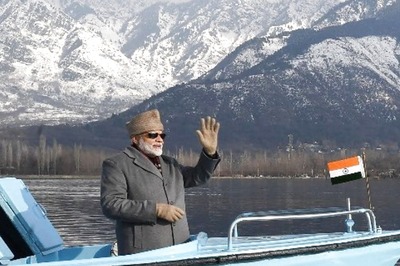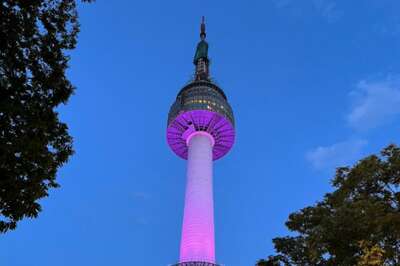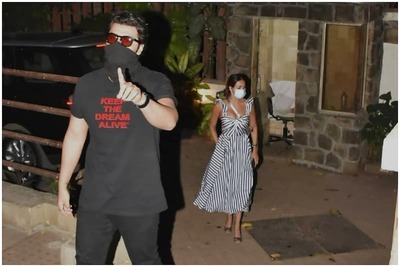
views
A pharmacy outlet in Manipur’s Imphal has registered the highest sales under the government’s affordable medicine scheme, Pradhan Mantri Bhartiya Jan Aushadhi Pariyojana (PMBJP), a top government official told News18.com.
The store in east of Imphal sold medicines worth Rs 4.87 crore last year, followed by an outlet in Jammu, clocking Rs 4.83 crore in sales, and then Patna, which registered Rs 4.70 crore sales.
“Swayed by affordable generic medicines under the scheme, which are at least 5 to 6 times lesser than the cost of branded versions, Prime Minister Narendra Modi’s flagship scheme is hit among people in non-metros and small towns,” Ravi Dadhich, chief executive officer, Pharmaceuticals and Medical Devices Bureau of India (PMBI) — the government arm that executes the scheme, told News18.com in an exclusive interview.
“While the scheme offers a chance to opt for affordable treatment, the store owners also receive a 20% commission on the revenue generated,” Dadhich added.
Moreover, pharmacy stores based in southern India capture a majority share in the list of highest-selling outlets under the scheme. The data shows that six out of the top 10 outlets are based in Tamil Nadu and Karnataka.

Uttar Pradesh has maximum outlets, that is, 1,410, followed by 1,076 in Karnataka, 979 in Kerala and 896 in Tamil Nadu. With over 9,400 pharmacy stores across India, 2,931 stores (or 30% of the stores) are based in three southern states.
“The response from southern India is overwhelming, especially Kerala when we compare the size of the state and its population to the number of stores. The coverage of the scheme is very high,” he added.
10 Lakh Beneficiaries Per Day, Rs 1,236 Cr Revenue
From Rs 12 crore to Rs 1,200 crore, the scheme has grown over 120 times in the last eight years, and has been “overachieving” its targets. The scheme registers nearly 10 lakh beneficiaries every day.
Dadhich, a DANICS officer, believes that “the beauty of the scheme lies in the fact that despite minimal budgetary allocation and a small team of 140 people, we are able to serve those who can’t afford medicines and treatment.”
He said the scheme is built on an annual budgetary allocation of Rs 100 crore in the last fiscal year, which has managed to hit a turnover of Rs 1,236 crore in the last fiscal. “The next target is Rs 1,400 crore. We are already touching a monthly turnover of Rs 120 crore.”
The officer, who is at the helm of the scheme starting December 2021, also shared an instance.
“Imagine an auto-driver falling ill and being prescribed amoxicillin for a course of five days. Our strip of six tablets costs Rs 56 (Rs 9 per tablet), whereas its popular branded version costs Rs 227 for 10 tablets (Rs 22 per tablet). He will get cured for less than Rs 100. This is how we are touching lives.”
Out of 756 districts in India, the scheme’s outlets are open in 651 districts. At present, there are 10 districts with no presence of these stores mainly in Sikkim and Mizoram.
“We target to open 10,000 outlets across India by December 31,” he said, while sharing that there are 9,484 outlets in the country.
Testing of Drugs
Cardiovascular drugs remain the top-selling category followed by anti-diabetic and gastrointestinal. In September, the scheme launched the popular anti-diabetic drug Sitagliptin, which came out of patent in July.
Dadhich, who served as special secretary of finance with the Delhi government in his last stint before joining the scheme, said the priority is to launch more such drugs “as soon as they lose patent, almost immediately.”
The variants of the drug are available at Rs 60-Rs 100 against the branded ones, which are available between Rs 162 and Rs 258.
Dadhich ensured that the “quality of the drugs is on par with international standards” and all companies supplying to the scheme are WHO-GMP certified.
“We have 13 NABL empanelled laboratories where we send anonymised samples of the drugs,” he said while adding that the scheme no more depends on testing reports submitted by the manufacturers and continues to send random samples to its own laboratories for verification.
“It takes 4 to 6 months to select a manufacturer starting from tender to pricing to testing… I have 30 companies jostling each other for just one product category we want to bring on board,” he said.
Out of the basket of total 1,800 products, 400 medicines are fast-moving and form 70% of the total sales. The remaining sales are derived from surgical devices and other medicines.


















Comments
0 comment